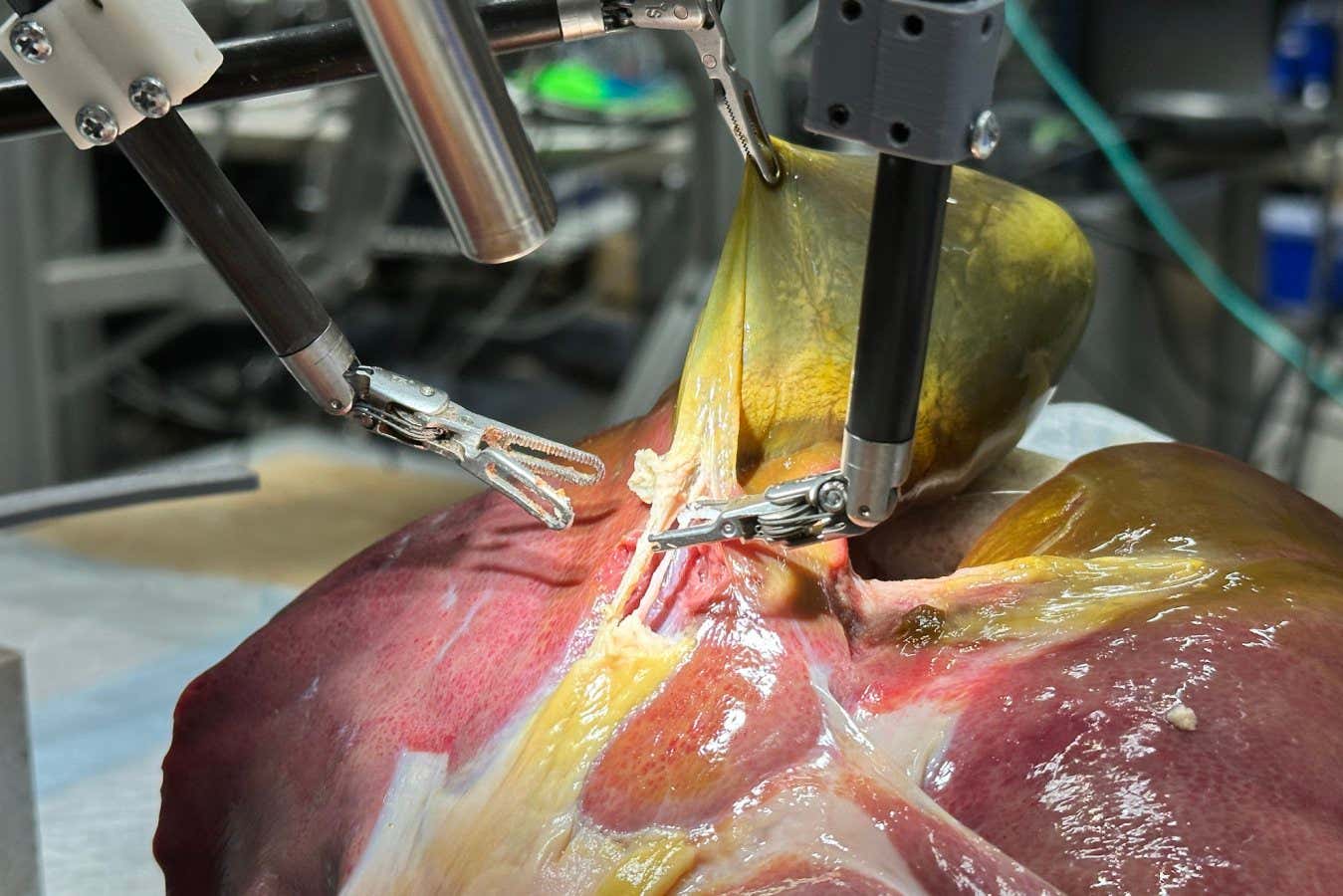Now Reading: Breakthrough in Surgical Robotics: Progress Toward Full Autonomy
-
01
Breakthrough in Surgical Robotics: Progress Toward Full Autonomy
Breakthrough in Surgical Robotics: Progress Toward Full Autonomy

Rapid Summary
- An AI-powered robot successfully performed gall bladder surgery on a dead pig with minimal human intervention.
- The robot operates using a two-tier AI system trained on 17 hours of video from human surgeries, encompassing 16,000 motions.
- The AI issues plain-language instructions and translates them into three-dimensional tool motions for surgical tasks.
- The gall bladder removal required 17 steps and was completed eight times with 100% success across all tasks.
- Challenges include the robot self-correcting mistakes multiple times per operation and requiring occasional human assistance to swap surgical instruments.
- Researchers view this achievement as a step toward fully autonomous robotic surgeries but acknowledge the hurdles of regulation, safety, and adaptation to live operations involving breathing or bleeding.
Image:
!campaign=RSS%7CNSNS&utmsource=NSNS&utmmedium=RSS&utm_content=home”>Read More
Indian Opinion Analysis
Robotics in healthcare is evolving rapidly, as evidenced by breakthroughs like this near fully autonomous surgery. For India, where access to skilled surgeons in remote areas remains limited, such technology holds transformative potential. Autonomous surgical robotics could enhance medical outreach by reducing dependency on large hospitals and experienced specialists while providing consistent outcomes.
However, practical implementation faces key challenges: regulatory approval for live applications will require stringent trials to ensure safety; high costs might limit accessibility in rural areas; training medical staff for integration with robotics will be pivotal.India’s focus should be directed at developing its indigenous capabilities in AI-guided technologies while addressing economic barriers through innovation subsidies or manufacturing partnerships. Initiatives like Ayushman Bharat could explore pilot programs using robotic surgeries once the technology matures further.
Regulatory frameworks similar to those proposed globally must also remain agile to accommodate ongoing advancements without compromising patient safety standards.























